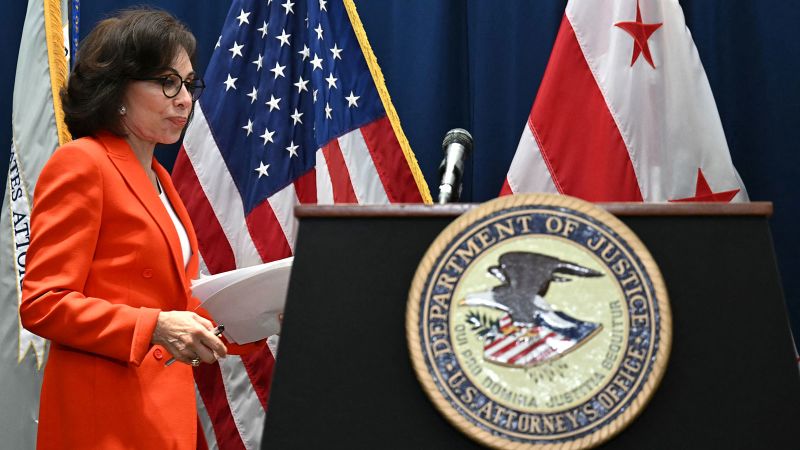Jeanine Pirro’s initial week as Washington, D.C.’s federal prosecutor was undeniably marked by a substantial challenge that would set the tone for her tenure. The task of leading the investigation into the shocking murders of two Israeli embassy staffers—Sarah Milgrim, 26, and her boyfriend Yaron Lischinsky, 30—just outside a prominent Jewish museum demanded a deft touch and extraordinary composure. This critical case became her debut performance, transitioning Pirro from her previous role as a prominent Fox News commentator to a key figure in the realm of justice.
Pirro’s handling of this high-profile murder investigation drew significant scrutiny. It was an opportunity for her to solidify her new role and establish herself as a serious jurist in the public eye. Justice Department officials were reportedly pleased with her prompt and commanding approach, as her demeanor resonated positively with her staff, who felt reinvigorated following a tumultuous leadership era characterized by unconventional methods. Colleagues expressed relief at Pirro’s style, suggesting that the pressure from her predecessor, Ed Martin, who gained notoriety for his controversial communications and politically charged actions, had been taxing.
Despite similarities in their relationships with former President Donald Trump and overlapping agendas—such as immigration enforcement and crime reduction—Pirro appeared to diverge markedly from Martin’s fraught approach to leadership. As she focused on executing the responsibilities of her office, many of her colleagues welcomed the change in atmosphere, noting a renewed sense of teamwork and purpose amongst the personnel at the Department of Justice. A notable sentiment expressed was that her entire office felt a wave of gratitude for her focused handling of the investigation into the tragic murders.
A long-standing media personality, Pirro initially communicated primarily through social media platforms and public statements, including a widely circulated video addressing administrative issues, such as those surrounding office amenities. However, during her recent foray to the crime scene—a significant event that no doubt helped to enhance her credibility—she opted for a more conventional approach typical of a prosecutor. Accompanied by Attorney General Pam Bondi, Pirro showed a composed but visibly shaken demeanor as she attended to the aftermath of the tragic act of violence that had unfolded just hours earlier.
Commentary about the case emerged from various figures in the legal and political sphere, including DC Mayor Muriel Bowser, who found comfort in the collaborative efforts displayed during the investigation. Sources revealed that the private respect fostered between Pirro, Bondi, and Bowser was vital as they navigated the intense pressures surrounding their respective roles.
Reflecting on the gravity of the murders, Pirro poignantly remarked on the impact of such violence. She highlighted the horrific nature of the incident, describing the profound loss of potential and promise embodied by the victims. Her heartfelt acknowledgment of the emotional scars tied to this kind of violence demonstrated her awareness of the intricacies involved in navigating cases that resonate deeply within the community.
The DC US Attorney’s Office emphasized Pirro’s long history of combating crime and her commitment to maintaining high standards in evaluating cases. This philosophy extends to the current investigation, as they assert that the delicate nature of this case demands careful handling, especially in light of potential hate crime or terrorism charges against the suspect, Elias Rodriguez. It was announced that Pirro’s legal team was considering pursuing capital punishment, a significant decision that posed its own challenges, considering the public sentiment and legal dynamics of a largely liberal city.
This murder investigation represents not only the gravity of the specific crime but also serves as a pivotal moment in Pirro’s career. With the potential of the death penalty looming over Rodriguez, the case would necessitate meticulous legal strategy and execution in order to navigate the political implications that could arise. Given that the District of Columbia has not presided over a death penalty trial since 2003—a fact that adds further complexity to Pirro’s new role—the outcome of this case will likely have a lasting impact on her legacy and the operational integrity of the US Attorney’s Office under her stewardship.
As events unfold, the balance of justice, community safety, and political pressures will continue to shape the future of both Pirro and the broader landscape of justice administration within Washington, D.C.



